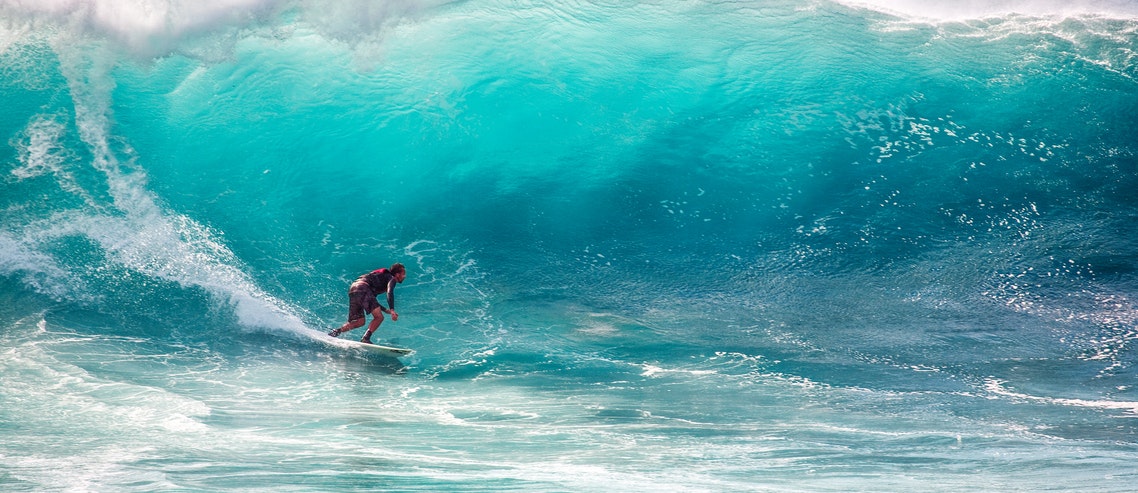Travel insurance that covers your adventurous life
Thailand’s one of the best places in the world to go for any type of vacation: there are plenty of luxurious resorts in the country, but there is also something for thrill-seekers in the Land of Smiles. Those who seek adventurous experiences are usually also those who put themselves at a higher risk of an accident, or even death. Therefore, it is extremely important for adventurous international travelers to understand that they need to obtain a special travel insurance plan with extreme sports benefits to cover the costs of hospitalization, medical evacuation, and any other travel and health-related matters.
The importance of travel insurance
Literally all travel insurance policies provide cover for emergency hospitalization, medical evacuation, and body repatriation, as these items represent the core idea behind trip insurance. Since the cost of medical treatments, as well as that of medical evacuation, return, and overall trip cancellation, can be high abroad, travel insurance policies are designed to safeguard you against any financial burden those situations may create. On top of accidents, Thailand is a place where many other health dangers await the unprepared. To protect you in a more comprehensive way, travel insurance policies also include benefits such as:
- trip cancellation and interruption,
- money and luggage insurance,
- emergency dental treatment,
- accompanying person,
- travel disruption
- personal liability
- and others
However, as in any insurance policy that has ever been written, there are exclusions; and extreme sports, among some other items, are almost always excluded.
Travel insurance for extreme sports: how does that work?
First, you must keep in mind that different insurers have different lists of extreme or hazardous sports and activities, and have risk tier lists for almost anything you can do during a holiday. Swimming with sharks is insurable, however with a slightly higher premium, whereas rock climbing in a remote area without ropes, instruction, and experience, most probably won’t be.
Most popular tourist activities such as zip lining, snorkeling, wakeboarding, and even surfing and white water rafting are usually already covered in standard travel policies. For anything that is not included in the standard policy, a traveler must obtain additional coverage – such as for a specific type of activity or sport he or she is planning to do.
Which sports are usually covered under a standard travel insurance policy?
Most travel insurance plans will cover certain, low-risk holiday adventure sports, such as banana boating, mountain biking, etc, with certain conditions. These conditions almost always mean that all those activities must be performed under the supervision of a licensed/professional instructor, and/or you have all necessary permissions and licenses to engage in such a sport or activity (driving license, P.A.D.I license, etc.), and that you took all necessary precautions to avoid injury.
Common extreme sports terms and exclusions
A common exclusion in almost all travel insurance plans is for hazardous activities. Hazardous activities are all sports, activities, or experiences that could pose a high risk of injury, and require you to take additional precautions to avoid injury or claim. Those precautions depend on the activity, but if you are hurt while riding a bike in the mountains in Thailand without a helmet, or scuba dive without a license, an insurance company might decline your claim, as you endangered yourself and did not use all precautions to avoid injury.
Quite often personal accident or personal liability benefits are excluded for a wide range of “extreme” sports. Some are only covered if those activities fulfill policy conditions such as doing such sports/ activities with a licensed guide or instructor, and some are excluded altogether and can be added as an addition to a standard plan. These, depending on the travel insurance policy provider, include:
- Canyoning
- Cave diving / Cavern diving (recreational visit only is covered)
- Freediving
- Martial arts training (including Muay Thai)
- Parachuting
- Hang gliding
- Mountaineering up to 6,000 meters
- Paragliding/parapenting
- Rock climbing
- Skydiving (solo)
- And others, as per policy
As you can see the list is long. As such, Pacific Prime Thailand recommends that you plan your adventures in advance, and buy a plan with extended coverage for those sports you will be participating in.
How to compare travel insurance policies and choose the best one?
One way to compare travel insurance policies is to ask yourself a few questions about your needs. Finding out how often you travel and what possibly dangerous activities you plan on doing is one way of narrowing down your choice.
Let’s take a look at the duration of stay. There are few travel insurance choices: Single trip travel insurance, multiple trip insurance, and annual travel insurance. Depending on the frequency of your trips, you can either buy single trip policies, or – if you’re a frequent traveller – an annual policy. For those looking for to have continuous and comprehensive cover, global health insurance might be the best solution.
Other things to consider when buying a travel insurance policy is that there are plenty of things that are not covered, such as any treatments resulting from pre-existing conditions, ongoing natural disasters, unnecessary dental care, treatment for mental or emotional disorders treatments, and more.
An experienced broker can help you create your travel or global medical plan according to your needs. Whether you need short-term coverage for freediving, a cave-exploring mission, or simply cycling through rice paddies, contact our team at Pacific Prime Thailand. We can help you find your ideal benefits, so that you can enjoy your stay and relax (or excite) yourself without financial worry.
- World Blood Donor Day 2022: Why should you donate blood? - June 14, 2022
- Digital Nomad Health Insurance: How to Choose the Right One - May 25, 2020
- Quarantine nutrition tips: stop overeating and stay healthy! - April 27, 2020

Comments
Comments for this post are closed.
We'll notify you
when our team replies!